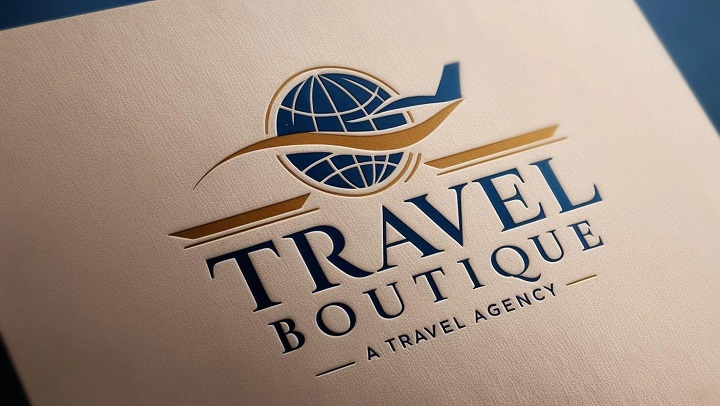
For small businesses, independent tour operators, and local service providers, becoming a supplier on a travel platform presents a powerful opportunity to reach a global audience, build credibility, and grow revenue. Whether you’re just starting out or looking to scale your services, understanding how to navigate the onboarding process and optimize your presence is key.
Here’s your step-by-step guide to becoming a successful supplier on a travel platform.
1. Understand the Benefits of Partnering with a Travel Platform
Joining a travel marketplace — such as GetYourGuide, Viator, Airbnb Experiences, or Booking.com — provides immediate access to a large, pre-qualified customer base actively seeking travel-related services. These platforms invest heavily in marketing, SEO, and customer trust, which suppliers can leverage without having to run expensive independent campaigns.
Key benefits include:
- Global reach: Gain visibility to millions of travelers worldwide.
- Built-in trust and payment systems: Reduce friction for buyers.
- Review systems: Build social proof through customer ratings.
- Support services: Access to customer service, tech support, and supplier tools.
2. Evaluate and Choose the Right Platform for Your Offerings
Not all travel platforms cater to the same audience or product types. Some focus on adventure travel, others on high-end tours, and others still on niche experiences like cooking classes or cultural workshops. Take time to explore which platform aligns best with your target audience and business goals.
Consider the following when choosing a platform:
- Type of services accepted (e.g., tours, activities, rentals)
- Commission structure and payout terms
- Supplier requirements (licensing, insurance, etc.)
- Geographic coverage
- User interface and ease of management
You may even decide to list on multiple platforms to broaden your exposure, though this will require more effort to manage inventory, bookings, and communications.
3. Prepare Your Business for the Application Process
Once you’ve selected your ideal platform(s), it’s time to prepare for the onboarding process. Most travel marketplaces require you to complete an application, which typically includes:
- Business verification (e.g., business registration, tax ID)
- Proof of relevant licenses or permits
- Bank account information for payouts
- Liability insurance (if applicable)
- Portfolio of experiences or services offered
Ensure you can present a professional, credible image. High-quality photos, detailed descriptions, and competitive pricing are essential. Many platforms also require suppliers to have customer service capabilities — meaning you or your team must be responsive to inquiries, bookings, and potential issues.
4. Optimize Your Listings for Visibility and Bookings
Once approved, your listing becomes your storefront. It should be polished, compelling, and optimized for search visibility on the platform.
Best practices for your listings:
- Clear and engaging titles: Use specific and enticing language (e.g., “Sunset Camel Ride in the Sahara” instead of “Camel Ride”).
- Detailed descriptions: Highlight unique selling points, itinerary, what’s included, and what to expect.
- High-quality images: Use well-lit, high-resolution images that showcase your service in action.
- Accurate pricing: Include all costs up front and offer competitive pricing based on similar listings.
- Availability management: Use calendar tools to reflect accurate availability to avoid cancellations.
Platforms often rank listings based on performance, so initial bookings and positive reviews will help your offering appear more frequently in searches.
5. Deliver Exceptional Customer Experiences
Success on travel platforms depends heavily on customer satisfaction. Every experience is subject to reviews, which significantly influence your ranking and visibility. Inconsistent service, late responses, or poor communication can damage your reputation quickly.
To stand out:
- Be responsive: Answer questions or issues promptly.
- Be punctual and professional: Ensure your services begin on time and are delivered as promised.
- Offer local insight and personality: Travelers love experiences with authentic, engaging hosts.
- Encourage feedback: Politely ask happy customers to leave a review after their trip.
Happy guests become repeat customers and brand ambassadors — often recommending your services to others and booking again on future trips.
6. Leverage the Platform’s Tools and Support
Most travel platforms provide dashboards and resources to help suppliers succeed. These tools can help you:
- Track bookings and revenue
- Analyze customer trends and performance
- Manage calendar and availability
- Communicate with guests
- Get tips on improving your listing
Take advantage of webinars, community forums, and supplier support. These resources often include marketing tips, product trends, and platform updates that can help you stay ahead of the competition. For those seeking to offer a more interactive and streamlined booking experience, partnering with solutions like Batch Partners can enhance how experiences are packaged, promoted, and shared — especially for group travel or event-based experiences.
7. Stay Compliant and Adaptable
Travel platforms may have evolving policies regarding cancellation terms, health and safety, or environmental practices. Stay informed and ensure your offerings comply with all platform and local regulations. Keep documentation up to date and be prepared to adapt your services if rules change.
In a post-pandemic world, flexibility and safety are top priorities for travelers. Offering free cancellations, small group options, or private tours can give your listing an edge.
Conclusion: Turning Opportunity into Growth
Becoming a supplier on a travel platform is more than just listing your services — it’s about creating memorable experiences, building trust, and managing your digital presence strategically. With a thoughtful approach, even the smallest local operator can reach a global audience and scale their operations.
The travel industry continues to evolve, and platforms offer an invaluable bridge between passionate providers and experience-hungry explorers. By understanding the onboarding process, optimizing your profile, and delivering excellence, you’ll be well on your way to turning travel dreams into business success.



